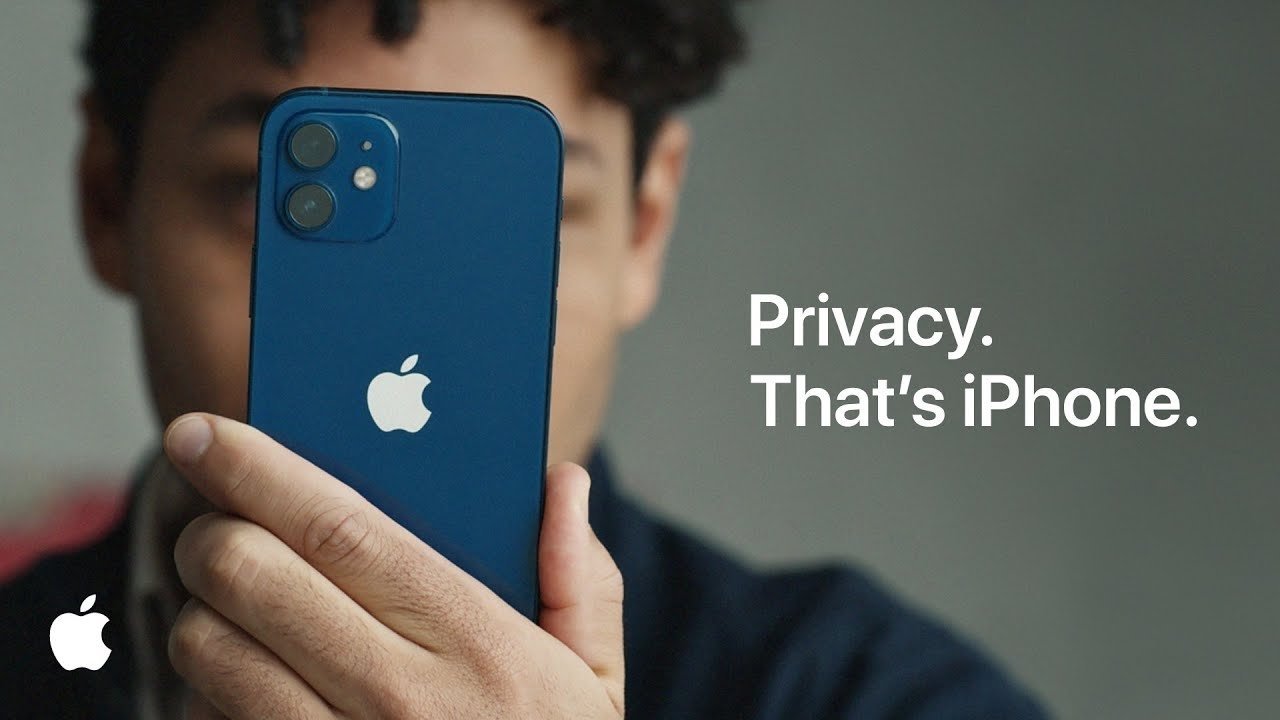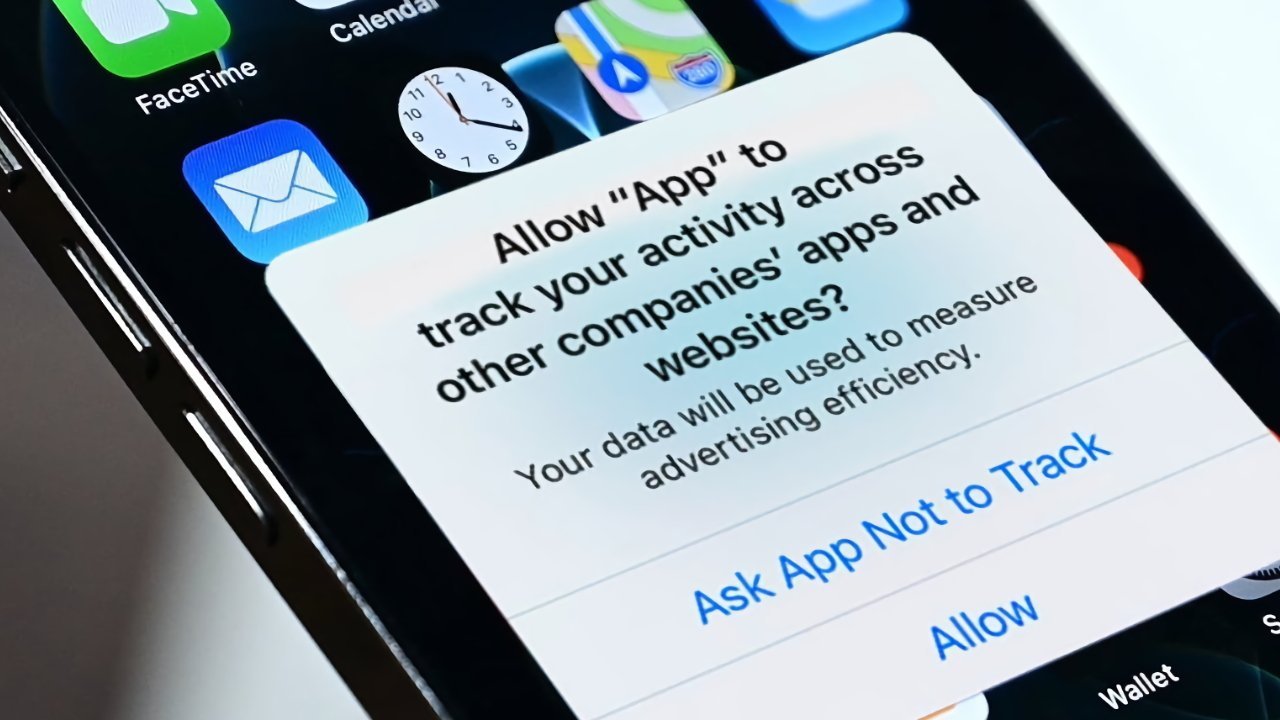There's the perception that Apple as a company has a hard-line stance against advertising, and complaints have sprung up that its ad ventures are hypocritical. However, the truth is more complicated than that.

Apple privacy
The Cupertino tech giant has gone toe-to-toe with companies like Facebook in the past over invasive advertising platforms. At the same time, Apple has been growing its own small advertising business.
Those two goals are not at odds with each other. More than that, Apple's own advertising endeavors aren't a signal that the company is going to become more like Meta or Google going forward.
Apple isn't against ads -- it's for privacy
It's easy to think of Apple as a company sternly in opposition to modern advertising, as evidenced by its apparent campaigns against the primary revenue drivers of companies like Facebook.
However, that isn't the truth at all. Apple isn't against advertising. Instead, it has debuted features aimed at preventing a very specific type of advertising model: ads based on invasive data collection. It's the kind of revenue model that Meta, formerly known as Facebook, was built on.
Apple's App Tracking Transparency -- which Facebook loudly campaigned against -- allows customers to ask apps not to track them across other websites and services. It doesn't block data harvesting outright, it only puts the power back in the hands of consumers.

Apple isn't against advertising, it's against invasive tracking to target ads.
This is objectively a good thing for online privacy. Even if a user has no problem handing out mountains of data to Meta, Google, or another company, there are reasons to be suspicious of invasive advertising.
Meta's own history with data storage and collection is shaky. The company has been hit for sharing data without user consent.
Facebook has also violated laws related to getting permission from users before harvesting certain types of data, such as biometric information.
Apple's own ads business
Apple is slowly growing its own first-party advertising business while also increasing the privacy for its users. It's important to remember that those two goals are not in opposition to each other.
The iPhone maker has long been in the advertising market, even if its own offerings have been small. You might think of Apple advertising as a program executed from the mind of Tim Cook, but you'd be wrong. Steve Jobs himself launched the iAd platform in 2010 with the stated goal of taking 50% of the mobile ad market.
That endeavor largely failed, and Apple's current first-party ad placement business is still in its nascent stages. But it's growing.
The company current allows developers to place ads in search results on the App Store. Soon, it'll allow for other ads throughout its app marketplace -- and elsewhere across its platforms.
Apple Search Ads are an example of a first-party paid ad placement.
At first glance, Apple might seem hypocritical for tamping down on the ads business of Meta while growing its own. Apple's ads business is built differently, however.
Apple doesn't track users and it doesn't use highly targeted advertising metrics. That means the ads that are shown to you in the App Store aren't based on sensitive information like your religion, policies, or health data. There's also no comprehensive profile of you on Apple's platforms.
Although this ad strategy may seem like it's good for consumers and bad for businesses wanting to advertise, Apple has released data suggesting that privacy-preserving ad tech results in the same performance as highly targeted ads.
So, again, Apple isn't against advertising. It just prefers user privacy while still hosting ads.
First-party ads
As a massive technology company, Apple understands the advertising business from both a first- and third-party perspective. Apple places ads from other companies on its platforms, but it also runs its own advertising campaigns.
Apple's own ads have been exceptionally well-executed, from its famous iPod commercials to more recent award-winning ad spots. Over the years, Apple's ads have changed in tone to focus more on hardware. However, they've always been consistent.
Apple has used its own ads and commercials to highlight privacy features.
There are also, of course, the "Privacy. That's iPhone" ads. You could see an ad for a product meant to cut down on targeted advertising as an oxymoron, but it illustrates that Apple isn't against advertising -- it's only against highly targeted ads based on invasive data collection.
The point of this is that Apple understands advertising from an advertiser's perspective. It's a for-profit company that wants to sell products, so Apple isn't and will never be against advertising.
Apple has made some missteps in its first-party advertising, to be sure. Earlier in 2022, for example, it appeared to experiment with placing first-party ads for its original podcasts in Apple Music -- a platform clearly touted as ad-free.
However, no company is going to be perfect. That's especially true given the scope and breadth of the products and services that Apple makes. The important part is that, even though it's a trillion-dollar tech giant, it hasn't (perhaps, hasn't yet) succumbed to the temptation to harvest and sell truckloads of data about its users to whoever will pay for it.
Privacy should be a choice
Companies like Meta will argue that its products are democratic and free because of their extensive data collection practices, and that Apple's own products are only "for the rich." Despite the obvious wrongness of the latter statement which is more intended to generate an emotional response than be an actual argument, there's more to it than even that.
It's true that harvesting mountains of data on users and then using that data to target advertising is lucrative. It's also true that this revenue model allows for subsidized use of social media platforms and services.
However, a balance must be struck. Making your platform accessible to a wide range of people is an admirable goal, but that shouldn't -- and must not -- come at the cost of the fundamental human right to privacy.
Facebook is notorious for its invasive tracking.
This is especially true because access to mountains of consumer data can be dangerous. Highly targeted ads and expertly tuned algorithms can fuel a range of issues, including the spread of misinformation and hate speech.
Apple has long understood this. Its pro-privacy stance -- rare among tech giants -- stretches back to the era of Steve Jobs.
Apple's own advertising model isn't perfect, but it's closer to a balance between advertiser needs and consumer right than most. And if consumers want better, they must vote loudly with both their voices and their dollars.